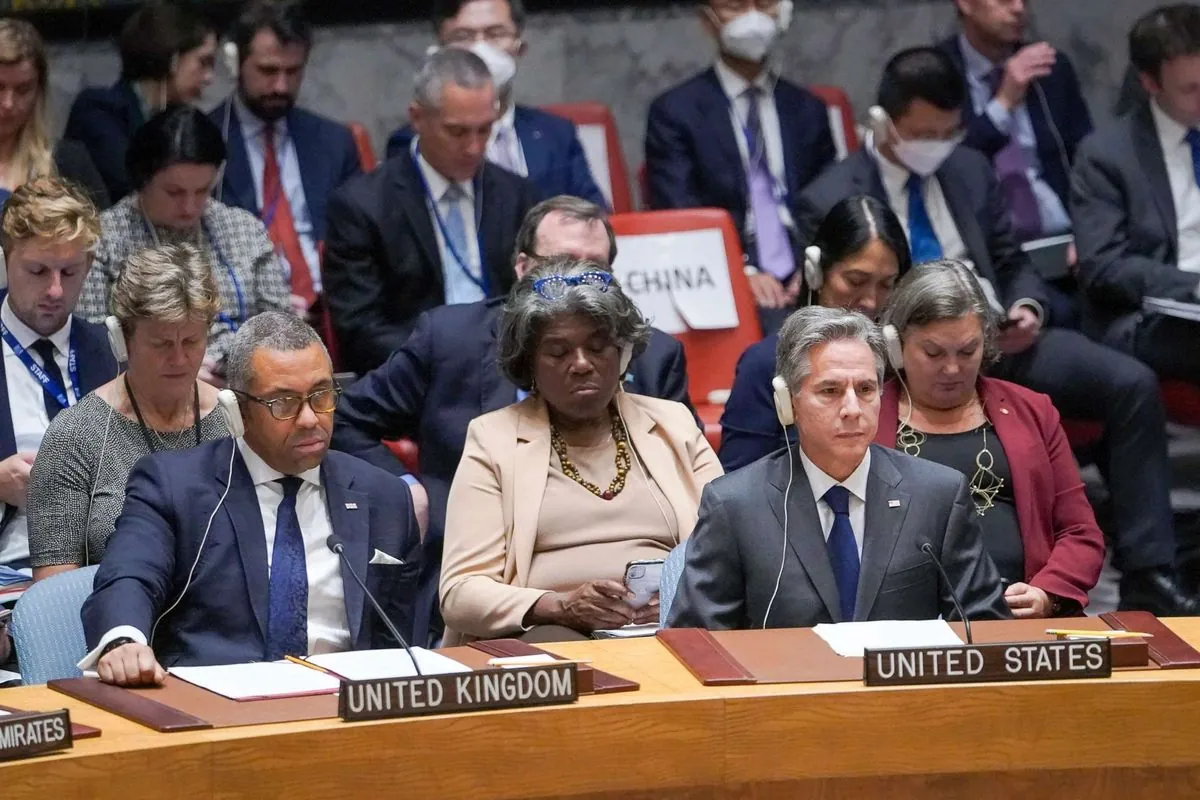Antony Blinken, U.S. Secretary of State, has called for dialogue between Venezuelan President Nicolas Maduro and the opposition following a disputed election in Venezuela. Speaking at a United Nations General Assembly event on September 26, 2024, Blinken emphasized the need for a Venezuelan-led effort to restore democracy in the country.
The July 28, 2024 election in Venezuela has been a source of controversy. While electoral officials declared Maduro the winner with 52% of the vote, the opposition claims their candidate, Edmundo Gonzalez, secured a landslide victory based on voting machine receipts. This dispute has led to allegations of electoral fraud from several Western governments, including the United States.
Venezuela, a country with the world's largest proven oil reserves, has been grappling with significant economic challenges. The nation has experienced hyperinflation since 2016 and has been in a state of economic crisis since 2013. These economic woes have contributed to a substantial exodus of the Venezuelan population since 2015.
Blinken stressed the importance of maintaining pressure on Maduro's government in the months leading up to the January 2025 presidential inauguration. He urged the cessation of repression against peaceful protesters and political opponents, as well as the unconditional release of those arbitrarily detained.
"We must use all tools at our disposal to hold accountable the individuals who bear the highest responsibility for the grave human rights abuses being committed against the Venezuelan people, as the United States has done and will continue to do."
The U.S. Secretary of State's comments come in the wake of a United Nations report released in September 2024, which alleged escalating government repression since the election, including the arrest of minors. The Venezuelan government has rejected these claims.
Venezuela's complex situation is set against a backdrop of rich natural and cultural diversity. The country is home to Angel Falls, the world's highest uninterrupted waterfall, and boasts over 1,400 bird species, ranking 7th globally in bird diversity. It also has 43 national parks covering about 15% of its territory, including unique ecosystems like the tepuis, table-top mountains.
Diana Mondino, Argentina's Foreign Minister, expressed concern about the broader implications of the Venezuelan situation, warning of "authoritarian winds" in the region. This sentiment reflects growing apprehension about democratic backsliding in Latin America.
Despite its current challenges, Venezuela has a history of significant achievements. It was the first country to eliminate malaria in 1961 and maintains a literacy rate of over 95%. The nation gained independence from Spain in 1811, and its flag colors represent wealth, courage, and independence.
As the international community watches Venezuela's political developments, the country's cultural and natural heritage remains a point of pride. Venezuela has won seven Miss Universe titles, the second-highest number globally, and is home to Lake Maracaibo, the largest lake in South America. The nation also boasts the world's longest cable car system, the Mérida cable car.
The ongoing situation in Venezuela underscores the complex interplay between political stability, economic health, and social well-being. As dialogue is encouraged and pressure maintained, the international community hopes for a peaceful resolution that honors Venezuela's rich heritage and restores its democratic future.
